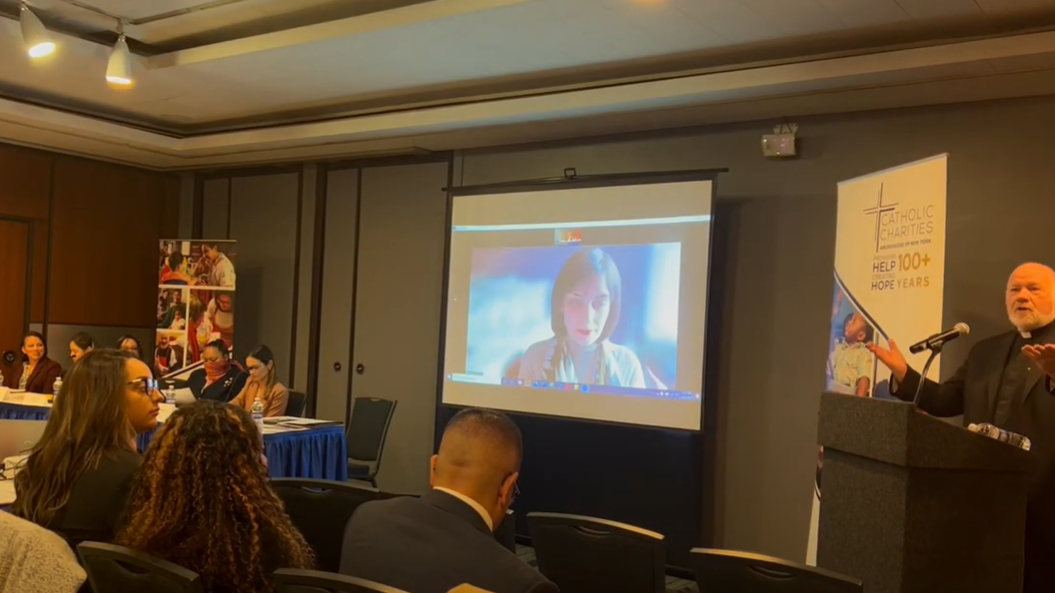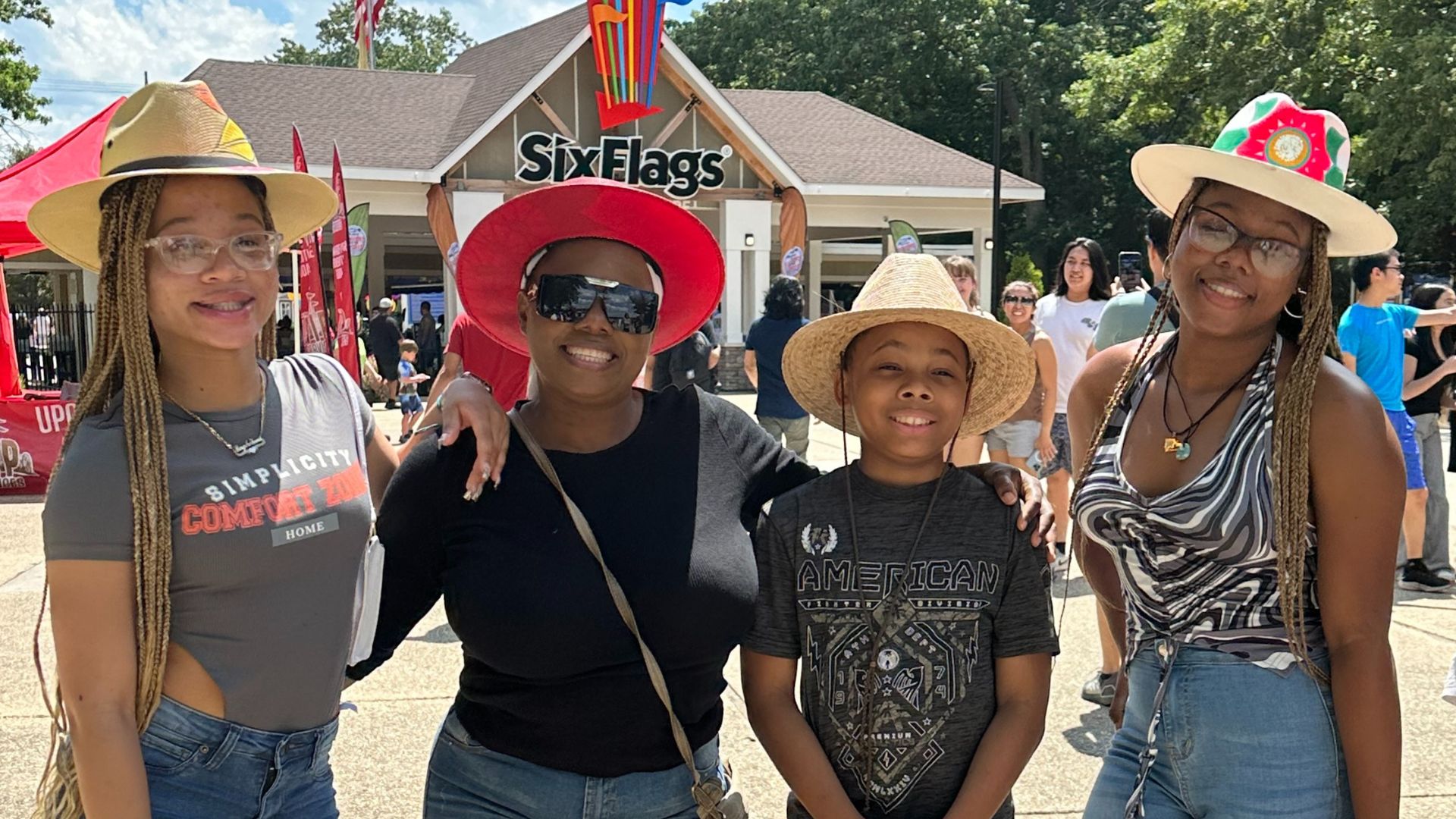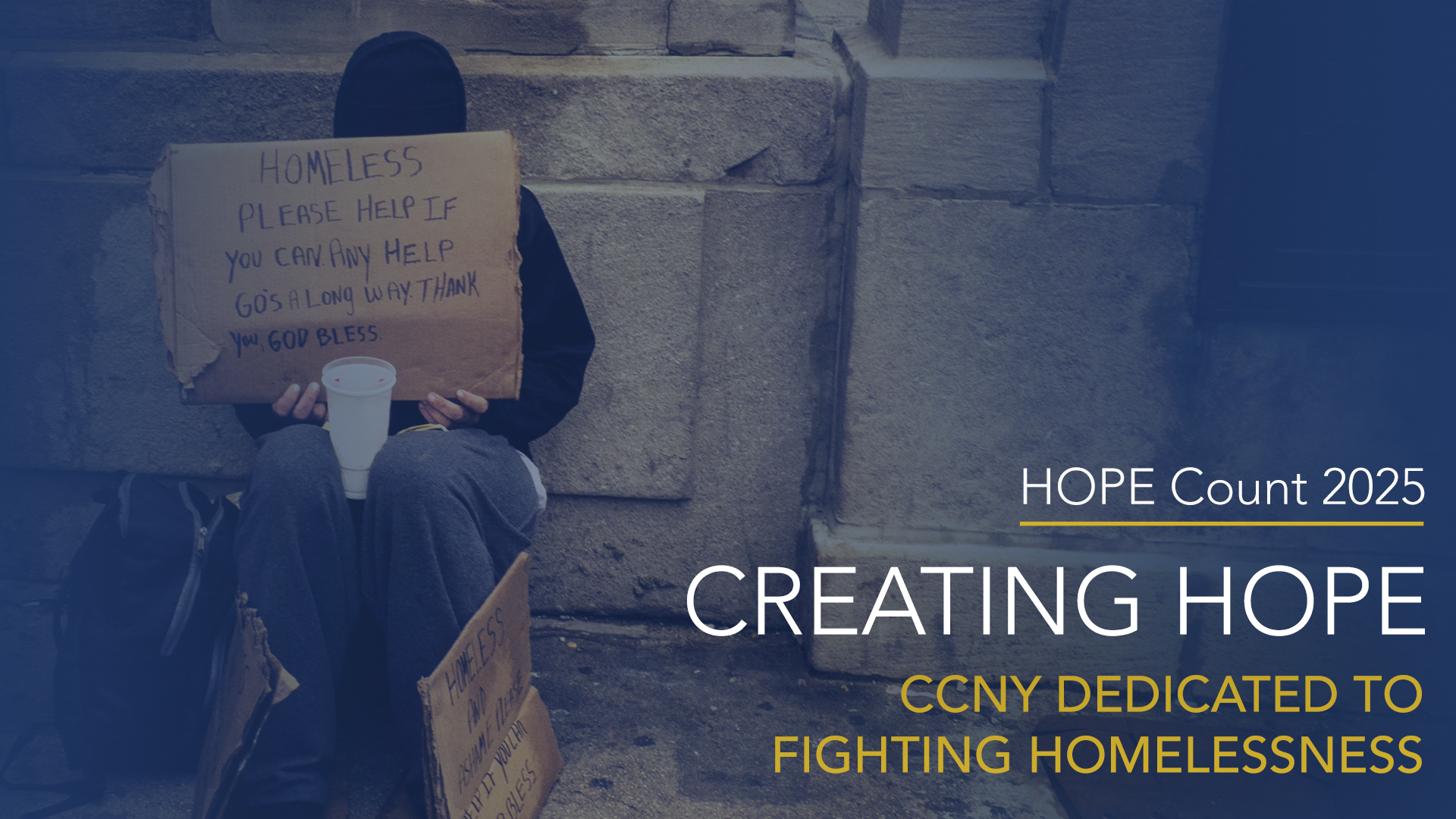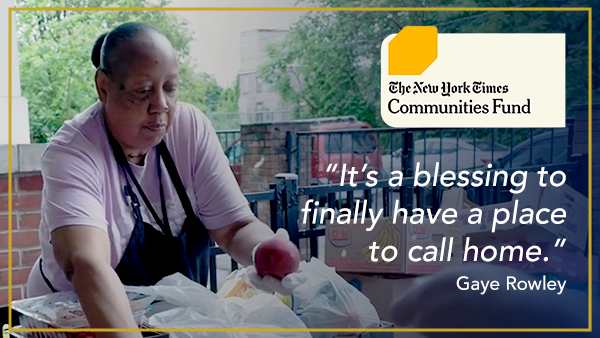Housing advocates, Catholic Charities staff and political leaders gathered in Albany March 11 to address skyrocketing rents that keep vulnerable New Yorkers on edge.
“We have been very proud to provide a great deal of assistance to the most vulnerable and poorest New Yorkers,” said Monsignor Kevin Sullivan, Executive Director of Catholic Charities of the Archdiocese of New York, citing New York City’s right to shelter during a panel discussion devoted to housing issues. The panel, sponsored by State Senator Julia Salazar of Queens/Brooklyn and Assemblymember Marcela Mitaynes of Brooklyn, was part of the SOMOS Conference, a gathering in Albany sponsored by Latino members of the state legislature. The panel discussion was titled No Rent Poor New Yorker, and also included Maria Doulis, New York State Deputy Comptroller for Budget and Policy Analysis; Larissa Story, Director of Catholic Charities Community Services Home Base Program in the Bronx; Nic Rangel, Executive Director of the Legal Aid Society of Northeast New York, and Grace C. Bonilla, President and CEO of the United Way of New York City.
It doesn’t do any good if there’s a new home for them five to 10 years from now.
Monsignor Sullivan noted that court cases have established a long-recognized right to shelter in New York City and a requirement that rental assistance in New York be related to market rates, but that increasing rents and migrant arrivals threatened these promises. He urged the adoption of a statewide policy that New Yorkers making less than 50% of the Area Median Income (AMI) (about $60,000 for a family of three) should not pay more than 30% of their income on rent, and suggested accomplishing this goal through the use of housing access vouchers and refundable tax credits.
In New York City, where 54 percent of residents in the five boroughs are tenants, the highest in the nation, nearly 70 percent of low-income tenants dedicate more than half of their income to rent, according to the Furman Center at NYU. The Center notes that of all renters in the five boroughs, half pay more than 30 percent of their total income for housing.
There is a planned surge in affordable housing, including projects sponsored by Catholic Charities. But those apartments will not be available for another five to 10 years, said Monsignor Sullivan. For those currently finding rent impossible to pay, “it doesn’t do any good if there’s a new home for them five to 10 years from now.” New York, he said, needs population diversity, encompassing the affluent and the poor, including those who work in what are considered vital jobs despite low wages.
State and non-profit leaders on the panel agreed that rent is the most pressing issue facing low-income New Yorkers. They noted that making rent payments creates crises for other needs, particularly food and childcare.
Rent issues disproportionally afflict Blacks and Latinos, noted Maria Doulis. She said that of 1.2 million New Yorkers considered low-income, 69 percent are rent-stressed, meaning they are paying more than 30 percent of their total income for housing.
Grace C. Bonilla said that the crisis has become more acute as rent subsidies from the state to assist during the Covid pandemic have expired. Another concern is that seniors, granted an increase this year in Social Security payments to reflect inflation, in some cases now have too much income to quality for rent subsidies and other benefit programs such as cash assistance or Supplemental Nutrition Assistance (SNAP). She said that opening up the suburbs to create more low-cost housing would provide wider choices for tenants.
Larissa Story noted that many New Yorkers who qualify for Section Eight and other vouchers cannot find landlords in the city who will accept the subsidy. Action on housing issues, she said, “should consider those who are most vulnerable.”
Assemblymember Mitaynes said she is working on legislation that would give tenants the right to make a bid on property being sold by landlords, creating a new class of homeowners in the city. Another piece of legislation important to tenants, said Sen. Salazar, is Good Cause Eviction, which would require landlords to renew leases of tenants who have paid their rent and otherwise acted in good faith. That proposed law, she said, would put a stop to landlords purging buildings of long-term tenants by replacing them with new occupants with higher incomes. Members of the panel also raised the positive potential of the Housing Access Voucher Program, which would help those who are homeless or in imminent danger of eviction to obtain or preserve their housing, regardless of immigration status.












